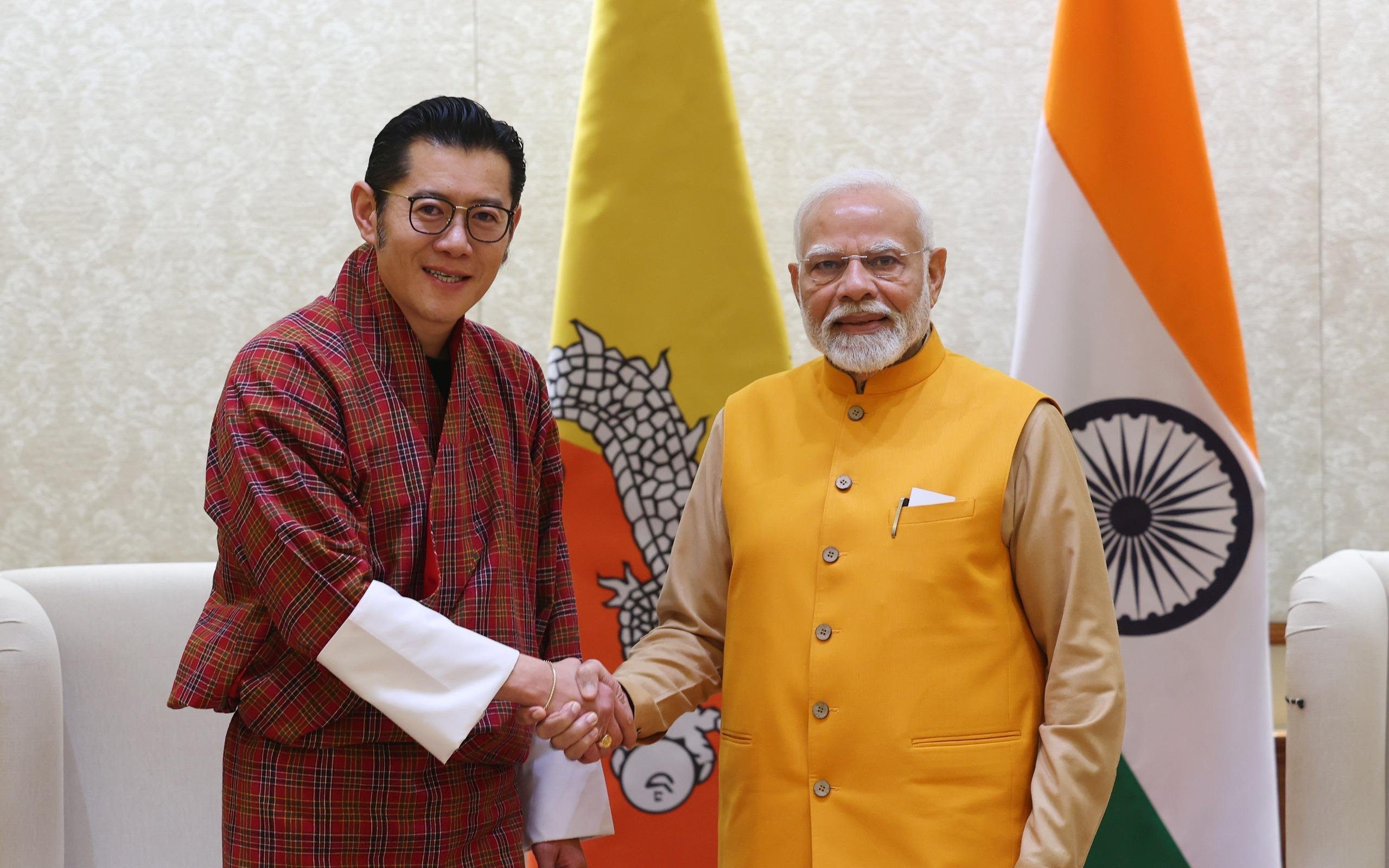Kathmandu, Nov 22: Indian Prime Minister Narendra Modi recently visited neighboring Bhutan, meeting King Jigme Khesar Namgyel Wangchuck in Thimphu. The two leaders agreed to strengthen bilateral cooperation in energy, connectivity, and cultural sectors, marking Modi’s second visit to Bhutan since 2014. Bhutan holds strategic importance for India as China expands its influence in the region. Positioned between India and China in the eastern Himalayas, Bhutan’s geography is sensitive for India. Areas near the Bhutan-China-India border, such as Doklam, are crucial for monitoring. China and Bhutan have overlapping territorial claims in Doklam, and any Chinese infrastructure or military activity there could threaten India’s Siliguri Corridor, as experts note. Tensions flared in 2017 when Indian and Chinese troops faced off in Doklam. In recent years, China has increased its presence in Bhutan through trade, telecommunications, and infrastructure, raising concerns in India over strategic and security implications. During Modi’s two-day visit, three agreements were signed between the governments of India and Bhutan. Modi also attended the 70th birthday celebrations of Bhutan’s former king, Jigme Singye Wangchuck, where several development initiatives were announced. India will construct a new immigration office in Assam’s Hatisar, improving travel access to Bhutan’s southern town of Gelephu. In September, India had announced railway projects linking Bhutan to the Indian rail network. The Kokrajhar-Gelephu line will connect Assam to southern Bhutan, while another line will link West Bengal’s Banarhat to southwestern Bhutan. India has pledged Rs 10, 000 crore in support of Bhutan’s five-year development plan and offered Rs 4, 000 crore in concessional loans for energy and infrastructure projects. Modi inaugurated the 1, 020 MW Punatsangchhu-2 hydropower project and announced the reconstruction of Punatsangchhu-1. Indian firms Tata Power, Adani Group, and Reliance Power also signed agreements for hydropower projects with Bhutan’s Druk Power Corporation. Plans for additional electricity projects next year were announced, alongside support to develop Gelephu as a “Mindfulness City” and build a temple and guest house for the Bhutanese community in Varanasi. Experts highlight that Bhutan’s increasing engagement with China drives India’s proactive approach. Dr. Amit Singh, associate professor at Jawaharlal Nehru University, notes that Bhutan historically favors dialogue and peaceful resolution in border disputes. Bhutan imported roughly $83 million worth of goods from China in 2023, reflecting growing trade ties. India aims to use connectivity projects strategically to reinforce security while expanding trade, tourism, and cultural relations. Bhutan earns nearly 40% of its revenue from electricity exports, with most power supplied to India, particularly to eastern states. Its currency is pegged to the Indian rupee, and Bhutan consistently supports India in international forums. Elizabeth Rosh, associate professor at O. P. Jindal Global University, emphasizes that Modi’s visit reflects India’s need to maintain a strong strategic position in eastern Asia amid regional instability, including political unrest in Bangladesh and Myanmar. India’s increased investments in energy, connectivity, and cultural projects in Bhutan underline its long-term strategy to maintain close economic and security ties and counter growing Chinese influence in the region. People’s News Monitoring Service.
https://mypeoplesreview.com/2025/11/22/india-boosts-investment-in-bhutan-to-counter-chinas-influence/
India boosts investment in Bhutan to counter China’s influence



